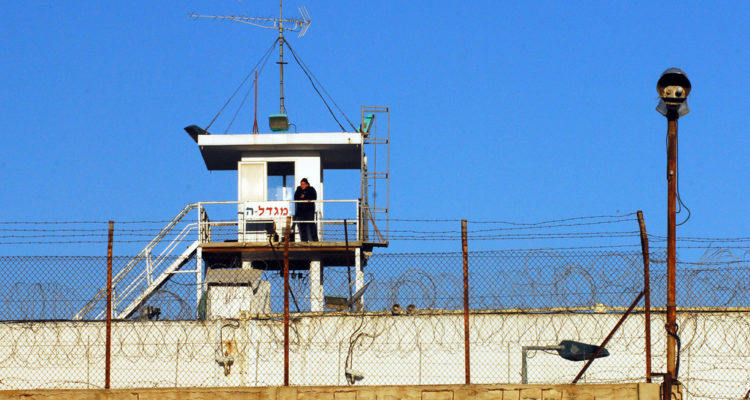Imprisoned Palestinian terrorists are attempting to exacerbate a drought in Israel by wasting water.
By: World Israel News Staff
Palestinian terrorists incarcerated in Israeli prisons are intentionally wasting water as a way to harm Israel, which has been contending with a drought, leading the Israel Prison Service (IPS) to limit their water consumption.
The Hakol Hayehudi news site reported that security prisoners are wasting hundreds of thousands of cubic meters of water on purpose to deplete Israel’s water supply.
IPS data shows that prisoners incarcerated for security offenses use far more water than the standard convicts. Specifically, security prisoners use about 3.5 times more water a year than the average Israeli, with 250 cubic meters (8,830 cubic feet) used by a terrorist compared to 70 cubic meters (2,472 cubic feet) used by an Israeli.
With some 5,800 Palestinian security prisoners serving time in Israeli jails, they are wasting an average of 750,000 cubic meters (26,486,000 cubic feet) of water annually, costing taxpayers some 5.6 million shekels ($1.5 million).
The IPS has begun plumbing work in prisons to separate the pipes feeding showers from those feeding sinks and lavatories, in a move that seeks to limit prisoner’s time in the shower without compromising their conditions overall.
”The Israel Prison Service is aware of this disconcerting situation and has been working to reduce it, in part by separating the lavatories’ plumbing system from that of the showers and limiting shower hours in order to diminish water use. This is implemented in all prisons containing maximum security wards,” the IPS stated.
Public Security Minister Gilad Erdan stated Sunday, “The fact that security prisoners use about 50 percent more water is unacceptable. We cannot allow such waste. I have instructed the Israel Prison Service to explore, without delay, additional ways to save water in wards housing security prisoners.”





